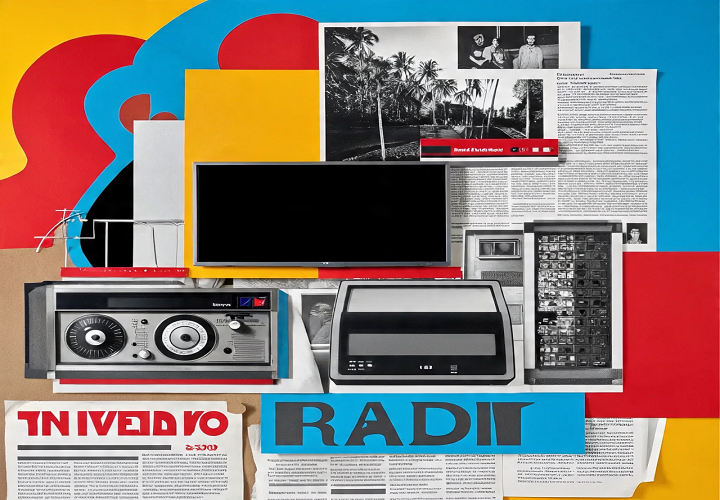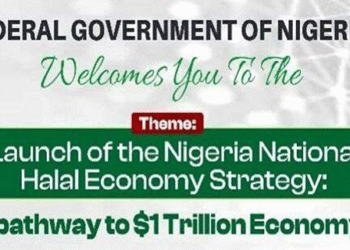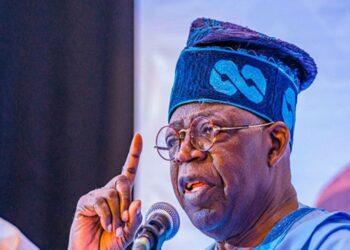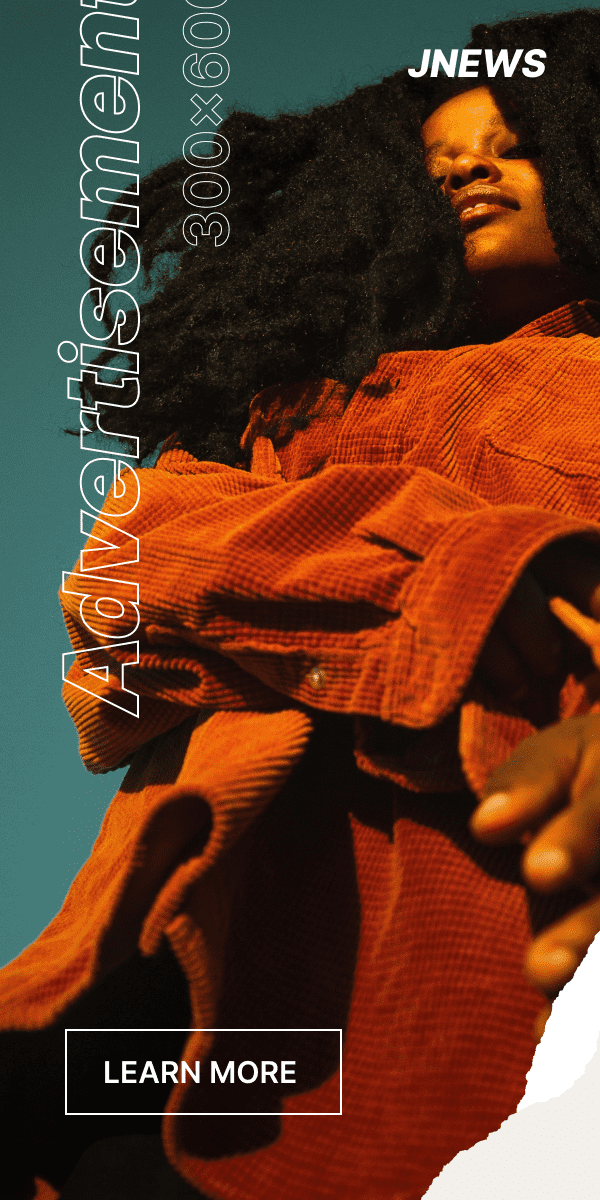By Rommy Imah
Television, since its advent in Nigeria in the 1960s, has become an integral part of national life—shaping culture, informing political consciousness, and projecting indigenous languages and values. It remains one of the most powerful media for mass communication, shaping public perception, amplifying political discourse, and serving as a vehicle for cultural preservation and national unity.
According to the United Nations, “television helps sharpen our focus on today’s major issues, as we witness conflicts and threats to political, economic and social security unfolding, often in real time.”
With the liberalization and democratization of Nigeria’s broadcast industry, radio stations have proliferated—reaching even the remotest parts of the country. However, radio has limitations: its transience, lack of visual impact, and restricted geographic reach mean television and print media still command greater influence.
In the face of this reality, one question persists: Who owns the platforms through which voices are amplified, realities interpreted, and narratives shaped in Nigeria? More specifically, where are the Igbo voices in Nigeria’s influential media landscape?
A Glaring Absence
Apart from AFIA TV, a television station based in Enugu, which other national TV station is owned and driven by an Igbo agenda? ARISE TV, often cited due to its association with Prince Nduka Obaigbena—an Igbo of Ika extraction—has made impressive national strides. But does it, in real terms, project the Igbo narrative or advance Igbo interests in national discourse?
Therein lies the dilemma. The Igbo, one of Nigeria’s three major ethnic groups, remain conspicuously underrepresented in the country’s media ownership structure, especially when compared to the dominance of the Lagos-Ibadan press, often seen as the media nucleus of the South-West, and the growing influence of Northern-owned media outlets.
Renowned communication theorist Denis McQuail once noted: “The belief that ownership ultimately determines the nature of media is not just a Marxist theory but virtually a common-sense axiom.” This is further echoed in Altschull’s Second Law of Journalism: “The contents of the media always reflect the interests of those who finance them.”
So why has media ownership remained a blind spot for Ndigbo?
Historical Calls for Change
This concern is not new. In 2012, at a one-day media summit hosted by Gregory University, Uturu, in Abia State, participants—including top media professionals and stakeholders—urged South Easterners to diversify their investments beyond oil and commerce and into the media space.
The Igbo phobia—or indifference—toward media ownership has cost the region dearly. In a country where ethnic, regional, and religious interests dominate public discourse, the media is the only megaphone loud enough to defend dignity, correct misperceptions, and challenge systemic injustice.
The summit, themed “Challenges of Media Ownership/Development and Good Governance: South East Experience”, was organized by the Nigeria Union of Journalists (NUJ), South-East Zone, in collaboration with Gregory University, to raise consciousness about the strategic necessity of media power.
A follow-up communique from the 2013 South-East Media Summit again echoed the same appeal: for more media ownership by people from the region and the need to publish newspapers in the Igbo language. Yet, over a decade later, the calls remain largely unheeded.
The High Cost of Silence
There is no gainsaying that the Igbo nation has no substantial voice in Nigeria’s highly influential media market. Many have likened the Lagos-Ibadan media cartel to a “Mafia-like” structure, setting national agendas, shaping public narratives, and at times, implementing government policies by proxy through the power of headlines and frames.
The media is, indisputably, the mirror through which society sees itself. It’s the lens that frames both perception and memory. A people not represented in media ownership are, in many ways, erased from national consciousness. As the biblical warning goes, “My people perish for lack of knowledge.” In this case, for lack of platforms to disseminate and control that knowledge.
In today’s world, over 80% of what we know is mediated, filtered through television, newspapers, radio, and now, social media. Whoever owns these channels dictates what is seen, heard, and believed. The consequence of ignoring this reality is stark: those who do not control media, live at the mercy of those who do.
Media without a Mission?
Yes, there are Igbo-owned newspapers and media outfits- but how many of them can be said to genuinely champion Igbo causes? A critical examination reveals that many were established to serve narrow political or personal interests of their publishers, not to advance a collective agenda. Instead of bold advocacy, we get timidity in the name of neutrality. Instead of cultural pride, we get self-censorship masked as national unity.
The media is, indisputably, the mirror through which society sees itself. It’s the lens that frames both perception and memory. A people not represented in media ownership are, in many ways, erased from national consciousness.
National but regionally biased publications such as Nigerian Tribune (South-West) and New Nigerian (North) have long demonstrated the possibility—and legitimacy—of advancing regional interests while participating in national conversations. Yet, the Igbo media landscape remains fragmented and feeble, unwilling or unable to boldly serve its people.
As Rudolf Okonkwo once wrote: “It is now funny when you think about the argument that Igbos have no unified voice or a cohesive leadership. How would they when they have no voice? If a tree falls in the forest and nobody is around to hear, did it make a noise? Where does opinion come together, if not on the pages of the newspapers? What microphone is louder than the news media? What leader reaches a wider audience without a microphone? And if the microphone is not yours, how do you influence who gets the top billing?”
The answer is obvious: you can’t.
Consequences of Phobia
The Igbo phobia—or indifference—toward media ownership has cost the region dearly. In a country where ethnic, regional, and religious interests dominate public discourse, the media is the only megaphone loud enough to defend dignity, correct misperceptions, and challenge systemic injustice.
Take for instance how the Lagos-Ibadan press sensationalized issues involving Ms. Arunma Oteh, former SEC DG, and Stella Oduah, former Minister of Aviation. What about news around IPOB and Nnamdi Kanu? It wasn’t about truth—it was about control. And because Ndigbo lacked their own national media platforms to counter such narratives, reputations were damaged and silence prevailed.
Ownership equals control. Control equals representation. Representation equals power.
Any newspaper or TV station that is comfortable with Nigeria’s lopsided structure will not risk reporting perspectives that threaten that imbalance—especially when those perspectives come from a people without media clout.
A Call to Action
It is time for Ndigbo to invest in their own platforms—not just to own media houses in name, but to build institutions with purpose and vision. Media platforms that understand, represent, and speak boldly for the people. Platforms that educate, inspire, defend, and unite.
Only then can the Igbo voice be clearly heard, their interests boldly defended, and their future effectively shaped.
Because until then, the question will continue to haunt us: Who speaks for Ndigbo?










